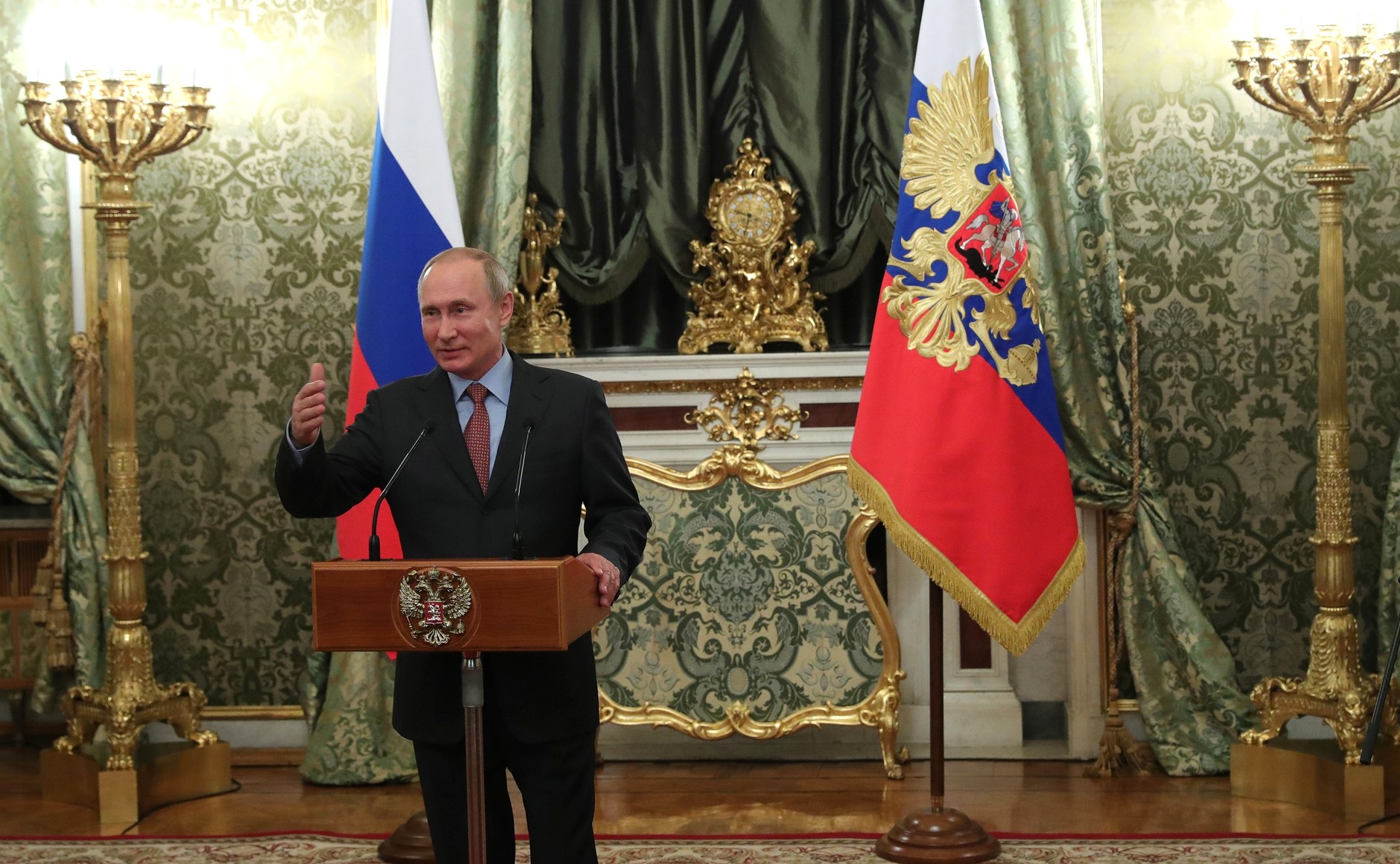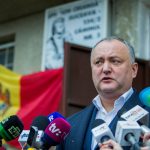RUSSIA MONITOR
Date: 11 May 2018
Populist Decree or Putin’s Intrigue
Just after his inauguration for another six years, Vladimir Putin signed a decree on Russia’s socio-economic development. In the document, he has determined a long list of extraordinarily ambitious goals for the government, such as introducing Russia into the top five of the world’s largest economies. Mr Putin’s plan is all about improving living standards so that Russian citizens live longer, healthier and more prosperously. Nevertheless, the plan seems unrealistic and Mr Putin will not be in charge of implementing new and all the responsibilities will have to be taken by the governement. So if these goals are impossible to achieve, why has the president decided to set them out? It aims to show Russians that their good will always go first; in addition, Mr Putin seeks to convince the West that he is ready to change his very aggressive external policy. But it does not mean the victory of the “party of peace” (represented by Kudrin, Medvedev and oligarchs) over the “party of war” (Sechin, Shoygu, siloviks).

Decree from May 7, 2018 sets out in 16 points national development aims up to 2024 so precisely for the entire Putin’s term, which has just started. The document resembles a long list of good wishes in terms of economic and social policy which are going to lead Russia to join the group of the world’s five largest economies in 6 years. Putin expects i.e. an acceleration of economy’s modernization and digitization, twofold cutting by half the number of Russians living in poverty, the inflation up to 4 percent, economic growth rate above the global average, an extension of transport infrastructure, an acceleration of the pace of residential construction, an increase in accessibility to healthcare facilities, an improvement of environment’s condition, an increase in labor productivity, longer life expectancy up to 78 years (from the present 72), bringing Russia to world’s ten when it comes to the quality of tertiary education, increasing non-energy export.
Putin’s “ukase” is based on the proposals of Center for Strategic Research which is a thinktank led by Alexei Kudrin. On April 23, Medvedev showed up with a visit there. After the conversation Kudrin boasted in the media that Putin recommended Medvedev to base country’s social and economic policy on his thinktank’s recommendations. Kudrin is supported by “the party of peace”, and for the long time he has insisted on cutting the expenses on defense. When it comes to Kudrin, a lot of rumors has been spreading around Moscow about the position he is about to assume. There are different options: president’s advisor, 1. Vice-head of the Administration of the President responsible for economy, Putin’s special representative whose tasks include improving country’s relations with the West. Without the sanctions being lifted up, it will be difficult to set the economy in motion, and liberal Kudrin’s reputation is going to help Putin to convince the West. Kudrin and Medvedev do not like each other. The first one left the government in 2011 straight after a clash with the then president Medvedev. But now they will be forced to form an alliance – and it is not just because Putin’s will. They both have a powerful enemy- siloviks group, the “party of war” (army, Shoygu, special forces, Sechin, Chemezov).
The directions of social and economic policy which have been outlined in the decree, were already announced by Putin in his annual message to joint houses of Parliament at the beginning of March. At that time, they were overshadowed by the military part of the message. Neither then, nor now the President does not point out the source of funding for announced expenditure – and it is about additional 25 trillion rubles. Now it may be possible to fork out only 8 trillion. But this is the government’s problem which is going to carry out this program. On this basis, vice premiers were appointed who are going to act more as mentors carrying out the specifics form the decree. They are going to form 12 country’s top priority programs which are going to be filled with “national programs”. Th government will no longer be able to postpone taking unpopular decisions, such as: rising retirement age, changes in taxes, education and healthcare. The government’s task will be to face social discontent. A similar bundle of documents were announced by Putin at the beginning of his previous term in May 2012. A small number of these were realized. A similar situation will take place now. One cannot win with the shiftless bureaucratic machine and Russia’s mentality. Carrying out at least a part of the goals from the decree would require limiting corruption, liberalization of law, or opening the economy and so on. That will require breaking the siloviks’ resistance. All this demonstrates that Kremlin’s new policy will last to the moment when Putin realizes that the West (especially the USA) did not fall for the “reforms” in Russia. Then another turn towards Russia’s aggressive foreign policy will take place and the old government will be replaced by the new one, throwing Kudrin’s ideas into a dustbin.
_________________________________
All texts published by the Warsaw Institute Foundation may be disseminated on the condition that their origin is credited. Images may not be used without permission.














